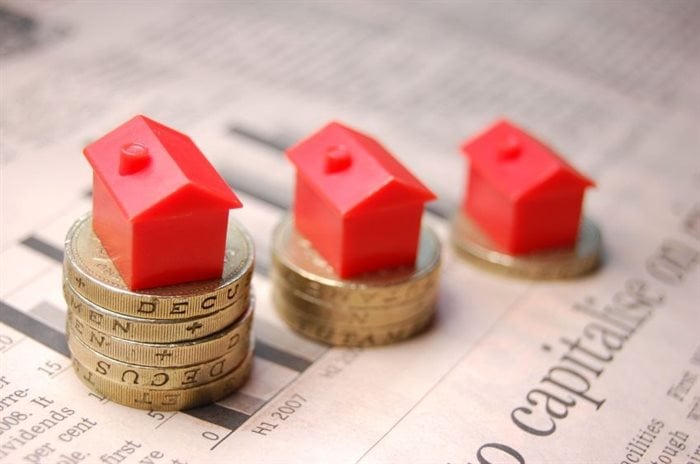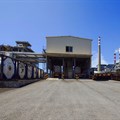According to FNB Commercial Property Finance economist John Loos, the longer run property market correction is expected to "normalise" in 2022.
“By 'normalise', I am talking about a situation where all out decline in average capital values across the commercial property sector ends, and we revert to a situation of very low growth in capital values, but insufficient to keep up with general inflation in the economy. This would translate into ongoing correction in capital values in “real” terms, the way in which property markets often slowly correct over long periods.”
Loos believes that after a period of significant decline in average commercial property valuations, to the tune of –9.5% from the second half of 2018 to the first half of 2021, according to MSCI half-yearly data recently released, we will likely move back into low positive growth territory in the All Property Average Capital Value in 2022. He points to first half 2021 data seeing a second consecutive semester of a diminishing rate of average property value decline after significant declines in 2020.
How far are we into the multi-year correction in real property values?
Loos says that he puts 2016 as the year in which the correction really started, in what he sees as a lagged response to broadly stagnating economic growth since around 2012. While actual (nominal) valuations weren’t yet declining significantly until much later, “9 out of 11 semesters from 2016 onward have shown real (GDP inflation-adjusted) declines in average values when compared with the preceding semester. So while actual valuations have dropped far less, in real terms (the proper way to assess a correction), the cumulative decline in the MSCI All Property Average Capital Value has been a significant -29% from the first half of 2016 to the first half of 2021.
2022 outlook – “normalised correction”
Loos believes that while actual values will stop their decline in 2022, the ongoing gradual correction will continue throughout the FNB three-year forecast horizon in “real” terms.
What makes Loos believe that in the short term, actual value decline will come to an end? “It’s all about the expected path of the economy,” he says. “After a severe real GDP contraction to the tune of -6.4% in 2020, a subsequent recovery in growth in 2021 and beyond improves demand for commercial property as a whole, just curbing oversupplies somewhat, which I expect to end value decline in 2022.”
However, the economic growth recovery that he speaks of doesn’t appear sufficient to bring about real inflation-adjusted value growth. This expectation, he bases on FNB’s GDP forecast that, although recovering, is only expected to reach a 2019 level (not growth, actual level of economy-wide output) in 2022.
“Given that 2019 was a year in which the rising all property vacancy rate trend continued to rise, I don’t see the rising vacancy rate, almost in double digits recently, being turned downward just yet, and would thus expect market rentals and real operating incomes on property to remain under pressure. I would, therefore, expect the correction to continue more gradually in 2022, with real value correction continuing but no longer all out nominal decline.” This, he says, is what he means when he refers to the expected “normalisation of the correction” in 2022, with gradual real value decline being less of a concern to mortgage lenders than all out decline in the actual value of the security behind the loan.
FNB forecasts real GDP growth to slow back to its pre-Covid-19 pedestrian rates following the 2021 post-lockdown surge. After an expected 4.7% growth in 2021, the result of an extremely low lockdown base created in the deep recession of 2020, 2022 is expected to see growth taper once more to 2.2%, and then further slowing to below 2% in the years thereafter.
Myriad structural constraints
The reasoning behind the slow projected growth after the initial post-lockdown spike is South Africa’s well-documented myriad of structural constraints, severe capacity limits in the broader public sector and its parastatals, ageing infrastructure and ongoing capital expenditure weakness in that sector, being but two broad weaknesses to mention. The recent erratic electricity supply, and another severe hike in electricity tariffs being requested, is but one visible critical constraint on growth in the economy.
And now, as the SARB starts its interest rate hiking cycle, interest rates become a further mild dampener on demand in what is a highly credit-dependent market.
This long-term stagnant growth in turn is Loos’ reasoning for ongoing valuations correction in real terms. He believes that the SARB will “go easy” on us with interest rate hiking, mindful of how fragile the economy is. FNB thus only expects two 25 basis point interest rate hikes in 2022 following last week’s first hike in the current cycle.
Longer term interest rates are expected to continue their multi-year “upward drift”, according to Loos, influenced by short-term interest rate rises, along with a high and further rising level of government’s debt-to-GDP ratio driving government long bond yields higher.
This, in turn, Loos believes, will sustain the upward pressure on property capitalisation rates in 2022.
Office and hotels to remain underperformers
“When examining the major individual property classes, Loos believes that the office and hotel property markets will remain the underperforming markets, and could still see some further nominal value decline. In contrast, he believes that the return in the All Property Average Capital Value to low positive nominal growth will be driven by the “outperforming” industrial property class and to a lesser extent by retail property, these latter two classes expected to see low positive nominal capital growth.
Loos questions possible overoptimism in the future of industrial property by some, given that economy-wide inventory levels remain very low, and manufacturing is still mediocre at best. But industrial property is the most affordable property class and arguably the most adaptable, while also benefiting from a gearing up of the logistics sector for greater levels of online retail. Relatively speaking, therefore, this class has quite a bit going for it, it would appear.
At the weak end, hotel revenues and occupancy rates remain far below pre-Covid-19 levels, and Loos believe that while foreign tourists will filter back in larger numbers in 2022, this won’t yet be at the pre-lockdown levels. Furthermore, he believes that a large part of daily business interaction has been permanently “Zoomified”, and a portion of corporate business travel won’t be coming back. The hotel property market is therefore expected to lag all three major commercial property classes on the recovery.
Struggling office market
And then there is the struggling office market. This major class is expected to see its national average vacancy rate continue to climb in 2022, as many companies revise their office space needs down. Much has been made of the remote work surge, and Loos believes that this is a key dampener of demand for office space. “As lockdowns ease and economic activity normalise, many have gone back to their offices. But I believe the level of office working won’t go back to the same levels as before the lockdowns, and as technology continues to improve, so the multi-decade trend towards greater remote work levels will continue.”
But Loos also says that people often overlook two other sources of pressure on demand for office space. The first is the normal recession effect, which caused a major drop in employment numbers in the office-bound sectors of the economy. This means that even without any increase in remote work, there are less employees in these services sectors, which implies less office space needed.
“In addition,” he says, “the trend towards improved utilisation of desk space seems to have picked up speed of late, with 'hotelling' of desk space being the buzz. Hotelling refers to a desk booking system, something FNB has recently implemented, meaning that employees either book a desk for a day or they don’t have one. Gone are the days, therefore, when every employee had a desk reserved for themselves, meaning a large portion of desks standing empty much of the time. This sharing of desk space will further reduce the need in the coming years for office space.”
Recent events playing into the hands of the Western Cape
On major regions’ property market performance, Loos believes that the Western Cape could be the likely outperformer in the near term. He bases this expectation on the belief that the Western Cape’s ability to attract “semigrant skills and purchasing power”, crucial for economic growth, has recently been enhanced. “The Western Cape has been the most popular semigration destination for many years now, due to the perception of the province as having a great lifestyle coupled to significant economic opportunity. It has also been seen to be a region where provincial and local government is relatively well-run. And as time has passed, communication and information technology has enabled businesses and individuals to be more removed from the major economic hub of Gauteng.
Now, more recently, the unrest and looting in KZN and Gauteng, Loos believes, may have enhanced the appeal of living and doing business in the Western Cape, a province that largely escaped that event. In addition, the City of Cape Town is the only one of the major six metros that has emerged from the recent local government elections with its ruling party having a clear majority, and thus free of the uncertainty of coalition politics.
Residential rental market to turn for the better
Finally, Loos expects that the residential rental market will turn stronger in 2022. This market has been under quite severe pressure in recent times, partly due to the negative impact on tenant finances and payment performance that the 2020 recession had, but also due to early-2020 interest rate cuts spurring many aspirant first-time buyers to move into the home ownership market, and he believes that this left a gap in the rental market too. Now, Loos believes, the onset of rising interest rates is likely to do the opposite, causing a portion of aspirant buyers to put buying on hold and renting instead. In addition, he observes tenant performance in the residential market continuing to improve since hard lockdowns last year, and concludes that prospects look a little brighter for the residential rental market heading toward 2022.




















































